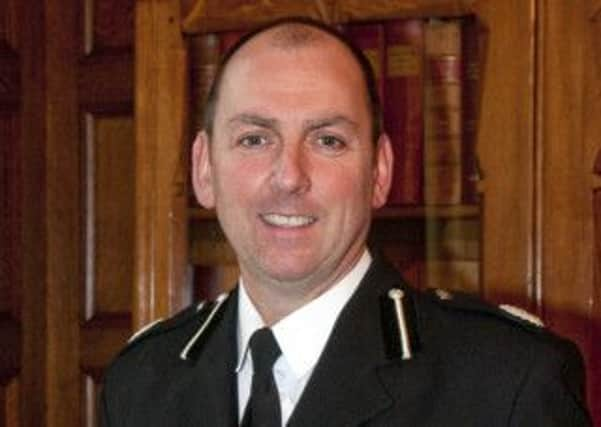Counter-terrorism chiefs in plea to region’s farmers


Weeks after the UK’s terror threat level was raised from ‘substantial’ to ‘severe’, meaning an attack is ‘highly likely’, police today launched an awareness campaign across the region.
Security briefings are taking place at crowded places across Yorkshire and the North East, including at shopping centres, sports venues, tourist sites and business parks.
Advertisement
Hide AdAdvertisement
Hide AdTargeted operations will take place at key sites to stop terrorist activity or criminal efforts which may help fund or support the cause of violent extremists.
Other events include working with farmers to ensure fertilisers, that can be adapted into explosives, are stored securely.
It is hoped that by reminding members of the public and Yorkshire businesses what signs to look out for they can help spot a potential act of terrorism being prepared or plotted.
A senior official from the North East Counter Terrorism Unit, who The Yorkshire Post has agreed not to name, said: “If people see or hear something that they are uncomfortable about or not happy with then they should report it to the police.
Advertisement
Hide AdAdvertisement
Hide Ad“Just to give you an example, a farmer might have stocks of fertiliser, they might notice a bag or a barrel going missing and might not think anything about it, but they need to tell us. We would want to know. It is raising that issue so that next time a farmer realises they have a bag or a barrel go missing, they think ‘oh, there is probably nothing in it but I will ring the police anyway’.”
Assistant Chief Constable Geoff Dodd of West Yorkshire Police, the lead for the North East CTU, said the nationwide week of awareness was “about re-focusing people’s minds on the issues”.
He said: “Members of the public and the business community have a particularly important role to play went it comes to recognising suspicious activity and reporting it to police.
“Those who work in, or visit, crowded places are often best placed to recognise the early signs that something is wrong. We want them to know what to do if they suspect something is out of the ordinary and how they can help to protect themselves and others. By working together we can make it harder for terrorists to operate in the UK.”
Advertisement
Hide AdAdvertisement
Hide AdThe 7/7 bombings in London in 2005, the most devastating terrorist attack ever on British soil, were carried out by four young men from West Yorkshire.
The CTU official said the communities the four Islamist terrorists came from were unaware of their intentions and “didn’t know what to look for”.
He said: “We are giving the public some indications now. [If they had the awareness we have now] we might have been able to stop it. Some people won’t know what they are looking for, but if we give them some indication they may think ‘people have talked about that, and as a result I will ring the police because I am not really that comfortable about what I have seen or heard’, that is all we are asking.”
Dr Gordon Clubb of the University of Leeds, an expert in preventing terrorism at community level, said: “Raising awareness of what signs to spot is important, but a successful preventative strategy also needs to be deeper.
Advertisement
Hide AdAdvertisement
Hide Ad“People with credibility in communities need to be empowered with the arguments for discrediting and de-legitimising the use of terrorism and be helped to actively have that discussion.”
As part of this week’s events, British Transport Police’s new Deputy Chief Constable Adrian Hanstock will address rail industry representatives at the National Railway Museum in York.
Fears of a terrorist attack on Britain’s streets have heightened in the wake of the rise of Islamic State (IS), the extremist group that has taken over large swathes of Iraq and Syria and attracted thousands of foreign jihadists to its cause.
Metropolitan Police Assistant Commissioner Mark Rowley, national policing lead for counter-terrorism, warned that police officers alone cannot combat the threat posed by extremists.
Advertisement
Hide AdAdvertisement
Hide AdAnd Britain’s top policeman warned that security services have foiled “four or five” terrorist plots this year and the threat is increasing. Scotland Yard commissioner Sir Bernard Hogan-Howe said the heightened tempo was putting “pressure” on resources - hinting that he expects the Government to boost funding in the Autumn Statement.
It emerged this weekend that police are to get powers to force internet firms to hand over details that could help identify suspected terrorists and paedophiles.
Anyone with concerns about suspicious activity or behaviour should contact the Confidential Anti-Terrorist Hotline on 0800 789 321. In the case of an immediate threat, always dial 999.